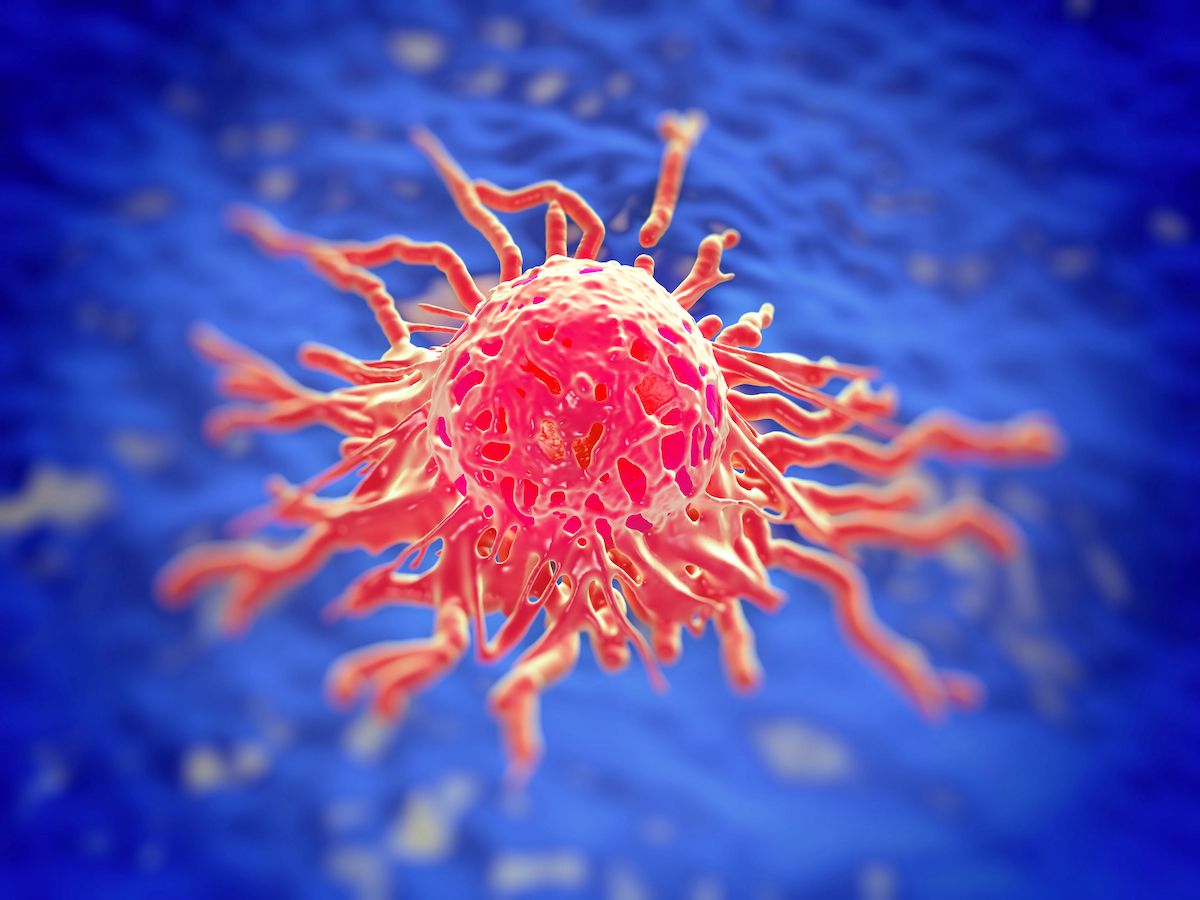FDA Grants THE001 Orphan Drug Designation for Soft Tissue Sarcomas
The FDA designation follows an orphan drug designation granted by the European Medicines Agency for THE001 in patients with soft tissue sarcoma.
No suspected unexpected serious adverse reactions or dose-limiting toxicities were observed with THE001 in patients with soft tissue sarcoma in a phase 1 trial.

The FDA has granted the thermosensitive liposomal formulation of doxorubicin, THE001 (DPPG2-TSL-DOX), orphan drug designation (ODD) as a treatment for patients with soft tissue sarcoma (STS), according to a news release from the drug’s developer, Thermosome.1
The FDA designation followed an orphan drug designation granted by the European Medicines Agency for THE001 in patients with STS. Additionally, the decision followed results from a phase 1 trial (NCT05858710) evaluating THE001 in STS presented at the Connective Tissue Oncology Society (CTOS) Annual Meeting in November 2024.2
Findings presented at CTOS revealed that treatment with THE001 alone or in combination with regional hyperthermia (RHT) was well-tolerated among heavily pretreated patients with STS. Additionally, the investigational agent showed feasibility as a modality for tumor-targeted drug enhancement, as well as local response and durable disease control among 2 of 4 patients treated at 2 dose levels. Furthermore, 1 patient was receiving ongoing treatment at cycle 12 as of the data cutoff date of October 30, 2024.
“We see the US orphan drug designation as a strong regulatory validation of the potential of our innovative approach in [STS],” Pascal Schweizer, PhD, cofounder and CEO/chief financial officer of Thermosome, said in the news release.1 “This recognition, based on preclinical and early clinical data from our phase 1 study, marks an important milestone and is a further step into the US market—the world’s most important market for patent-protected drugs. In parallel, we are evaluating strategic partnerships to advance THE001 and fully realize its therapeutic potential.”
Patients in the phase 1 trial received THE001 at adapted 3+3 multiple ascending doses with or without RHT. A total of 3 dose levels were planned for the study: 20 mg/m2 (DL1), 40 mg/m2 (DL2), and 50 mg/m2.3 THE001 was administered intravenously over 30 minutes with or without RHT every 3 weeks in 21-day cycles.
Cycle 1 consisted of THE001 only in all arms for safety precautions. In cycles 2 to 12, THE001 was applied in parallel with RHT, with dexrazoxane (Totect) provided as a cardioprotectant for patients who received a cumulative THE001 dose of 300 mg/m2 of doxorubicin. Patients received up to 6 cycles in the main study phase and an additional 6 cycles in the treatment continuation phase for a maximum of 12 cycles.
Patients treated in the phase 1 trial (n = 7) ranged from 31 to 60 years old. A total of 2 were male and 5 were female, and 4 had retroperitoneal leiomyosarcoma. Those treated received 3 to 8 lines of chemotherapy, received 1 to 6 prior surgeries, and received 1 to 2 lines of prior radiotherapy. A total of 2 patients had an ECOG performance status of 2, and 5 had a status of 0. Patients had stage IV (n = 4) or III (n = 2) disease, and 1 patient did not have evaluable disease stage at baseline.
The primary end points of the study were safety and tolerability of THE001. The secondary end point was antitumor activity.
Safety data revealed that 3 patients experienced treatment-related adverse effects of grade 2 or higher. Of note, 1 patient in DL1 experienced grade 2 anemia; another in DL1 experienced grade 3 neutropenia, gamma-glutamyl transferase increase, and fatigue; 1 patient in DL2 experienced grade 2 nausea and fatigue, as well as grade 4 neutropenia. No suspected unexpected serious adverse reactions or dose-limiting toxicities were observed.
References
- Thermosome receives U.S. orphan drug designation for lead compound THE001, expands patent estate. News release. Thermosome. May 12, 2025. Accessed May 12, 2025. https://tinyurl.com/5decc4y9
- Di Gioia D, Reichardt P, Güler SE, et al. Phase I study of THE001 (DPPG2-TSL-DOX) combined with regional hyperthermia in patients with locally advanced or metastatic soft tissue sarcoma. Presented at: 2024 Connective Tissue Oncology Society (CTOS) Annual Meeting; November 13-16, 2024; San Diego, CA. Abstract P410.
- Study of DPPG2-TSL-DOX combined with hyperthermia in soft tissue sarcoma. ClinicalTrials.gov. Updated February 21, 2025. Accessed May 12, 2025. https://tinyurl.com/mu9d5ypp
Sarcoma Awareness Month 2023 with Brian Van Tine, MD, PhD
August 1st 2023Brian Van Tine, MD, PhD, speaks about several agents and combination regimens that are currently under investigation in the sarcoma space, and potential next steps in research including immunotherapies and vaccine-based treatments.